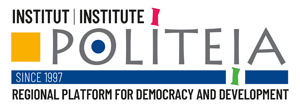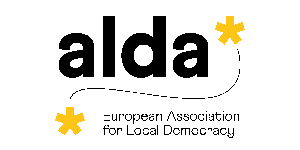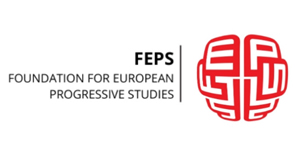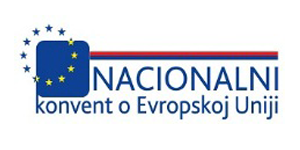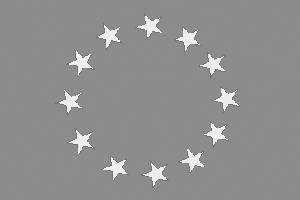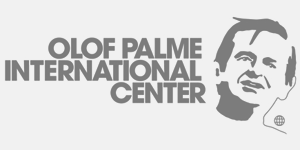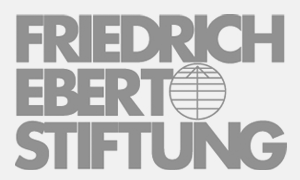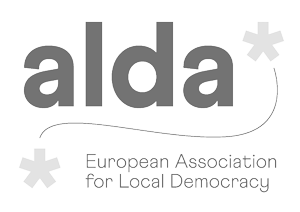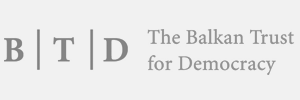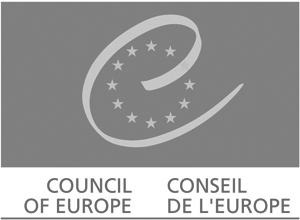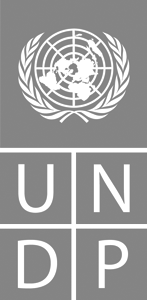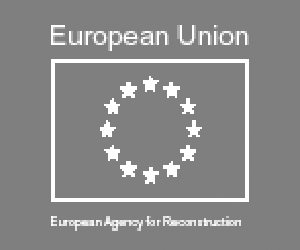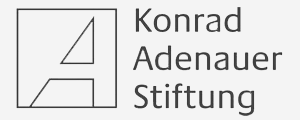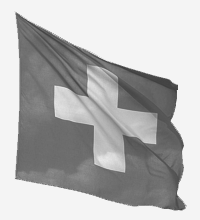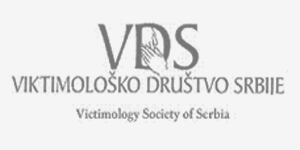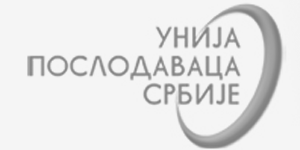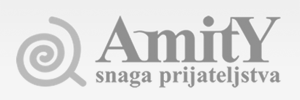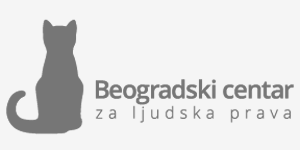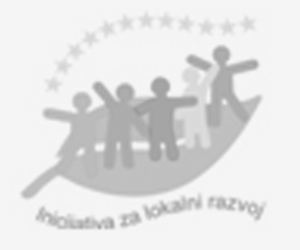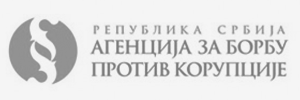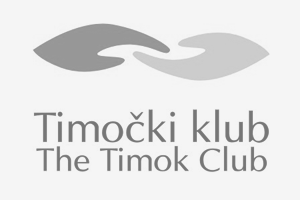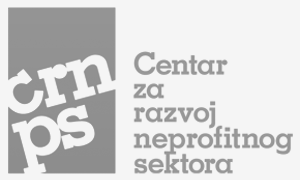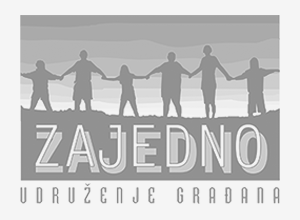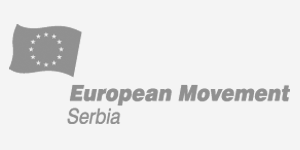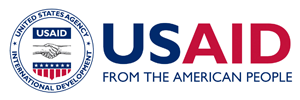Public Reading of the EC Report: The EU Wants Serbia as a Member, but the Pace of Accession Is Determined in Serbia
Traditional “Public Reading of the European Commission Report on Serbia 2025,” European House, Belgrade (November 7, 2025)
The European Commission correctly identified all the problems troubling Serbia, above all the deep and widespread political crisis, including accumulated issues in key areas – the judiciary, rule of law, freedom of assembly and the media, and the fight against corruption, participants of the “Public Reading of the European Commission Report on Serbia 2025” concluded. The event was held at the European House in Belgrade, organized by the Foundation Center for Democracy and the Center for Contemporary Politics.
At the gathering, traditionally held each year, it was emphasized that the assessments of the European Commission clearly show that official Brussels insists on respect for the same values that citizens of this country have been fighting for in protests over the past months, launched after the tragedy in Novi Sad. As specified, in most negotiation chapters Serbia has made no progress, and for the first time the EC notes backsliding in the area related to freedom of expression, which realistically reflects the current situation.
Participants in the discussion included: Plamena Halačeva, Deputy Head of the Delegation of the European Union to Serbia; Nataša Vučković, Center for Democracy Foundation (CDF); Bojana Selaković, National Convention on the European Union (NCEU); Katarina Golubović, Lawyers’ Committee for Human Rights (YUCOM); Milena Mihajlović Denić, Center for European Policies (CEP); and Nikola Burazer, Center for Contemporary Politics (CSP).
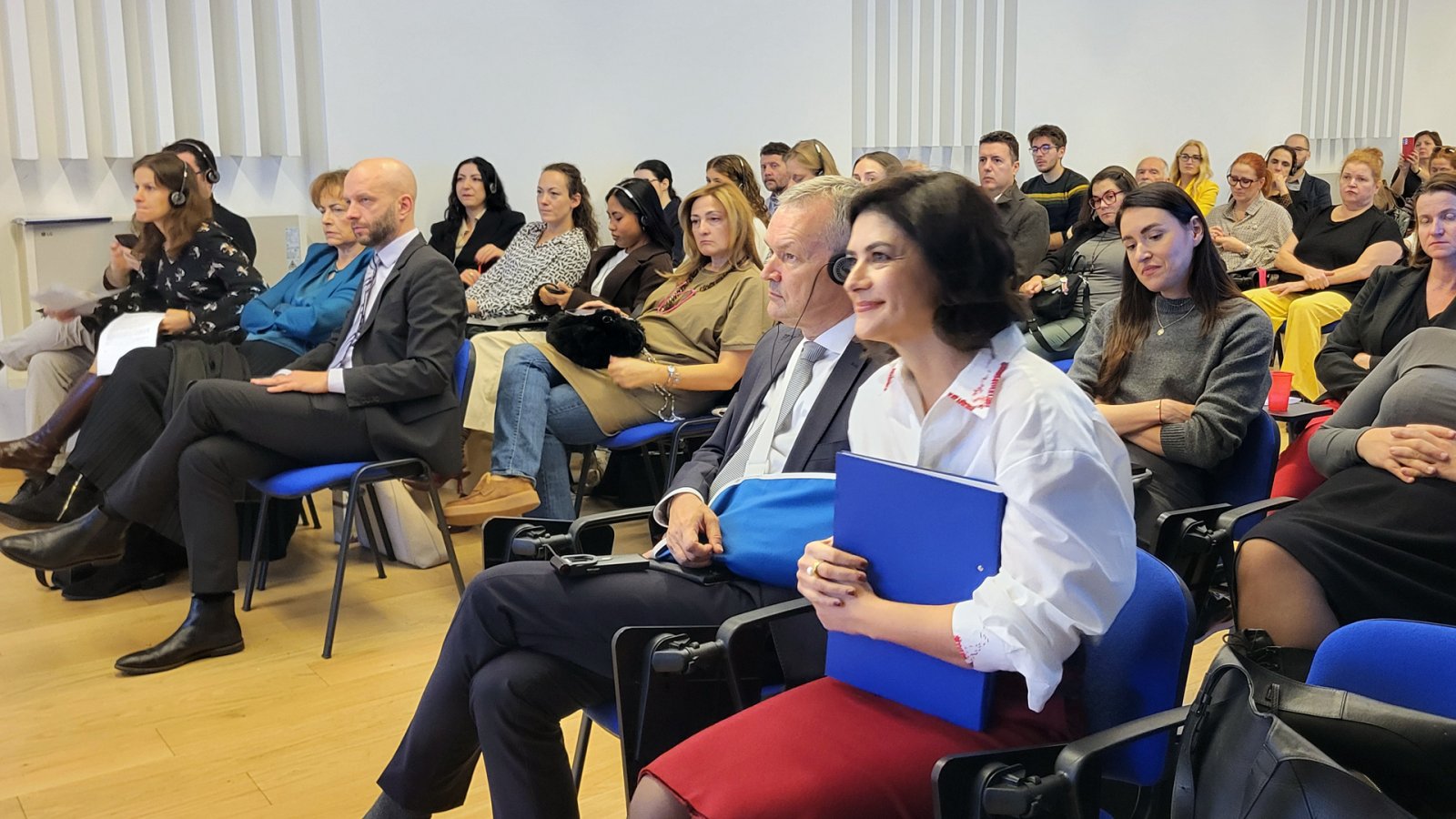
Plamena Halačeva, Deputy Head of the Delegation of the European Union to Serbia, stated that EC reports cannot be reduced to a single word or a quantitative assessment, as is often attempted, but rather represent a qualitative assessment, a kind of “roadmap.”
“Serbia needs an honest and open public discussion more than ever before… Every next enlargement must make the EU stronger, which is why it is necessary for each country to prepare for membership, while at the same time the Union itself must prepare for enlargement – that is why we are revising the enlargement policy,” Halačeva said in her opening remarks.
The Deputy Head of the EU Delegation in Serbia noted that the EC Report should not be understood as criticism, but as a mirror, showing, among other things, that “the pace of reforms has significantly slowed down in Serbia.”
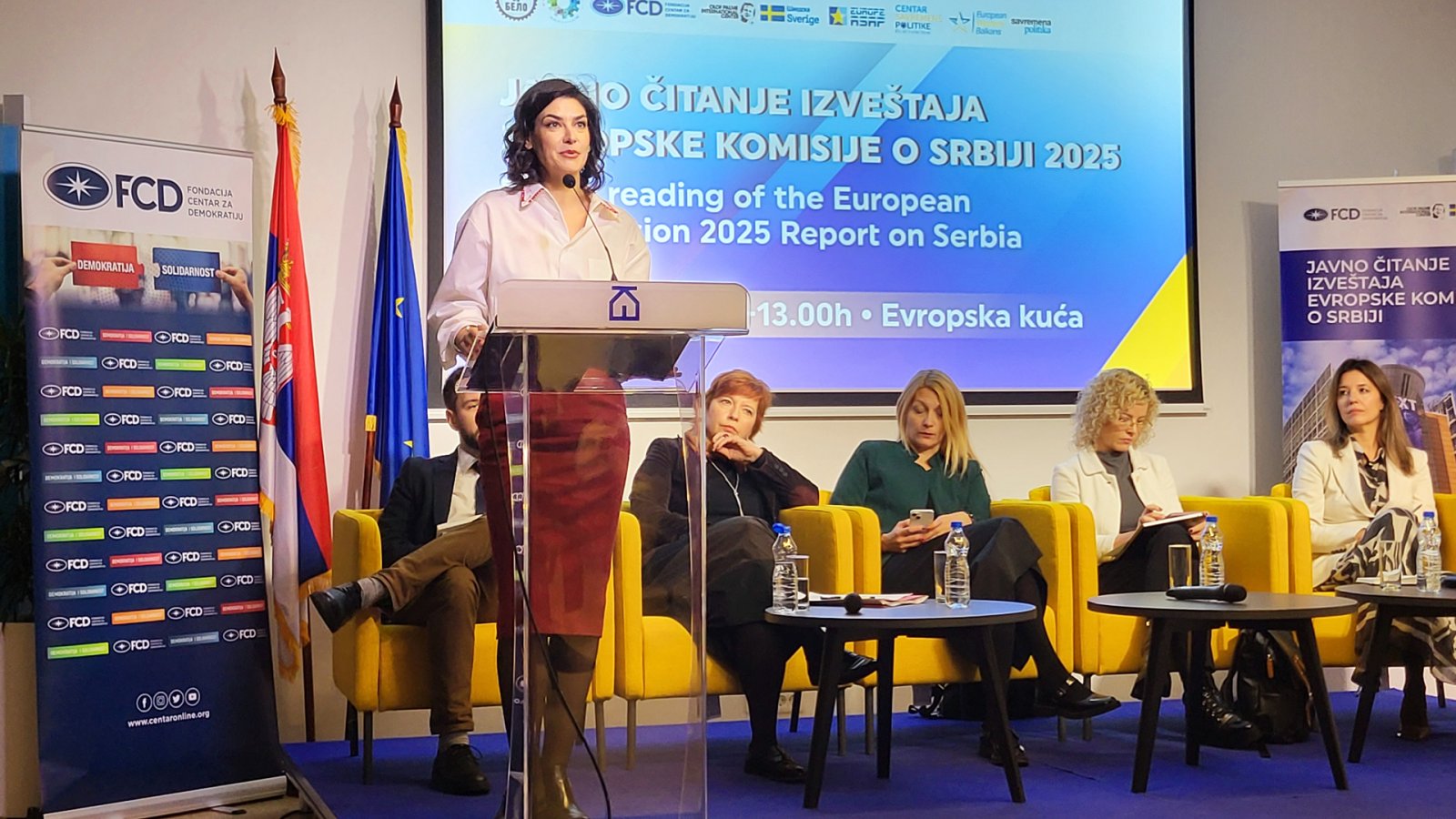
“There has been some progress in aligning with the EU’s Common Foreign and Security Policy, but the urgently needed reforms concern the judiciary, rule of law, and media freedom… These are also the demands of Serbian citizens,” she said.
According to Plamena Halačeva, it is necessary to end the rhetoric of division, that is, “Serbia should restore the spirit of dialogue in order to move forward.”
“The EU wants Serbia as a member; we believe that Serbia will become a member, but the pace of accession to the Union is determined here, in Serbia,” emphasized Halačeva, who symbolically handed over the EC Report on Serbia to Nikola Burazer, Program Director of the Center for Contemporary Politics, stressing that this copy was for the citizens of Serbia.
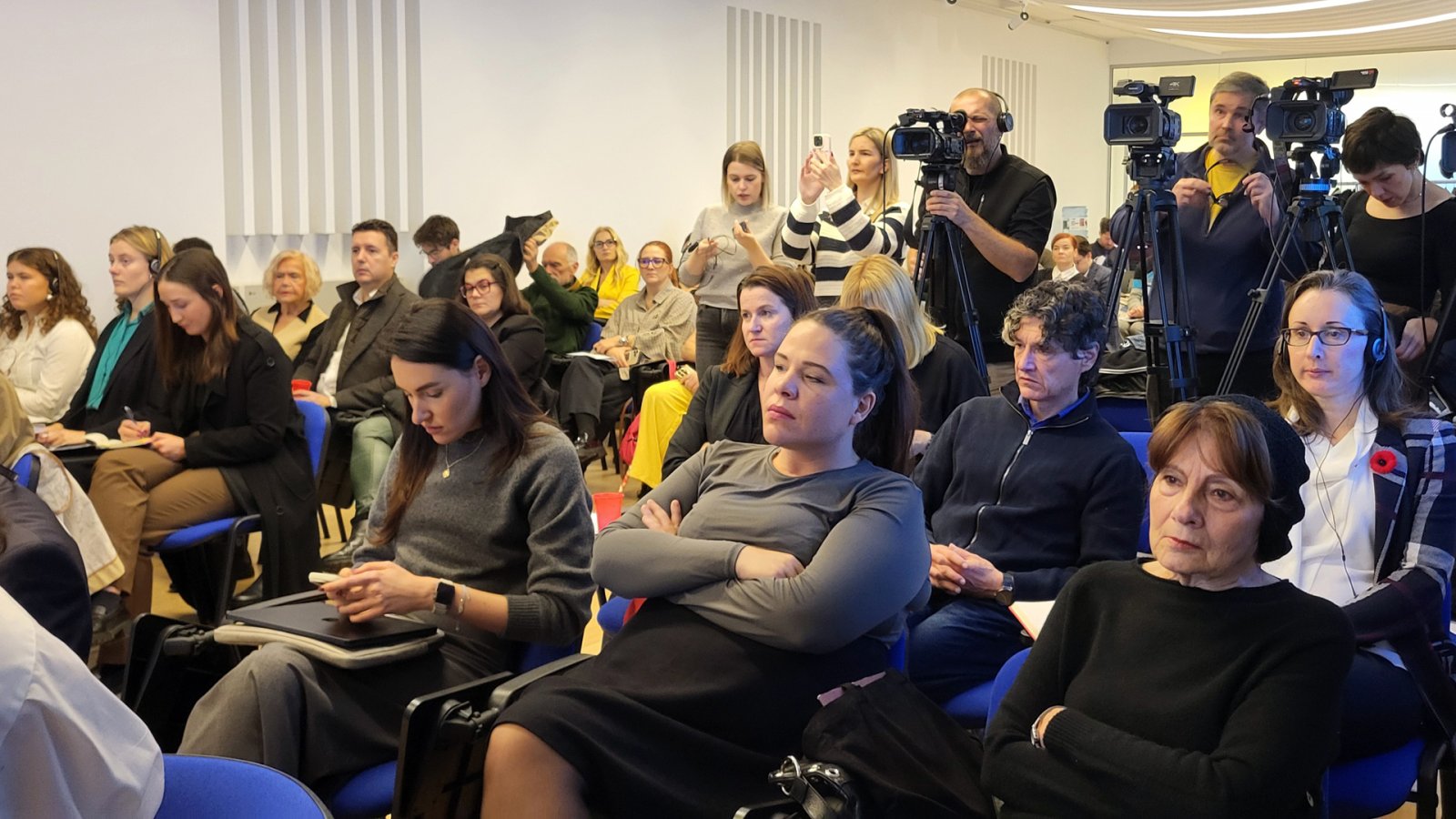
Nataša Vučković, Secretary General of the Foundation Center for Democracy, stated that it is wrong for the discussion on the Report to be reduced to the question of “whether this is the worst Report so far,” and that instead we should ask “whether, as a country, we are ambitious enough” to progress on the European path, that is, to what extent Serbia is committed to this process.
There is also the issue of communication – how the state communicates the accession process to the Union. “We see more and more anti-European and anti-Western narratives… When the President of Serbia claims that we would become an EU member if we renounce Kosovo and impose sanctions on Russia, that is a very sophisticated anti-European narrative, because he is sending the message that reforms do not matter and that only geopolitics does, which is not true,” Vučković assessed.
Although geopolitical factors have influenced the return of the enlargement process to the top of the EU agenda, Vučković emphasized that European reforms are also important.
“After all, that is why citizens chose this path. Over the past year, citizens have shown the extent to which European values matter to them and how much they want their representatives in state institutions to embed those values into Serbian society and the state,” said Vučković.
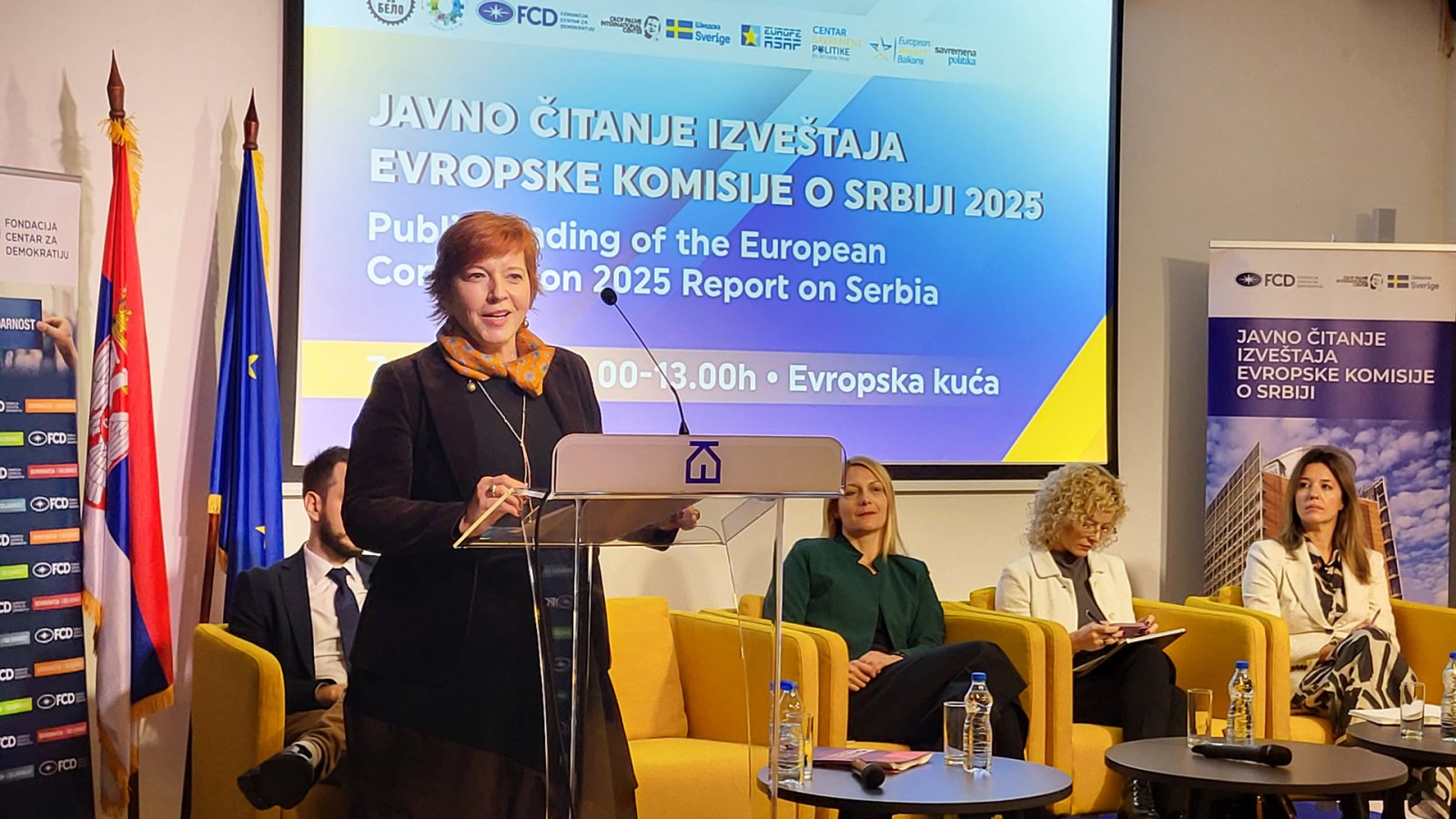
In a similar tone, Bojana Selaković, coordinator of the National Convention on the EU (NCEU), stated that the European Union is ready for enlargement “and demonstrates this in its relations with the four candidate countries – Montenegro, Albania, Ukraine, and Moldova, but it will not turn a blind eye or view candidates solely through a geopolitical lens.”
“The collapse of the railway station canopy in Novi Sad changed all our lives; a year earlier, we could not even imagine what our society would look like… We cannot escape the fact that the Report recognizes the same thing. We can see through the Report how deep and wide the crisis we are in is and how much it affects our European integration,” said Selaković.
According to Bojana Selaković, the EC Report is “realistic and objective, providing a kind of X-ray of our society because it shows the essential problems.”
“Even if some miracle were to happen, our society still needs a debate that now seems unable to reach the agenda, primarily because of the repressive measures of the authorities regarding freedom of expression… Everything that protesting citizens are demanding is found in the Report – these are obligations of a candidate country,” emphasized Selaković.
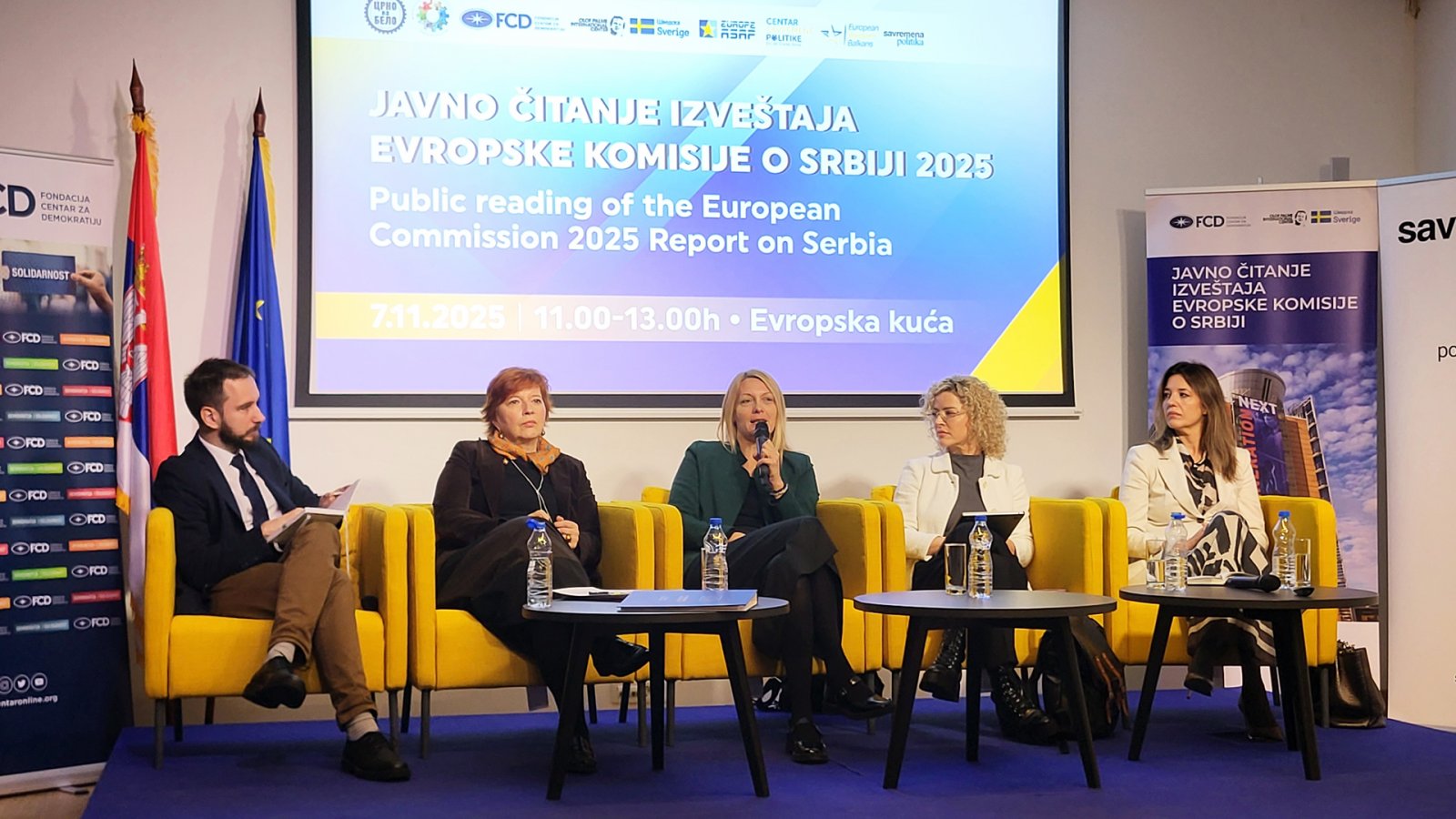
Referring to the segments of the Report concerning Cluster 1 (“Fundamentals”), Katarina Golubović, President of the Lawyers’ Committee for Human Rights (YUCOM), noted that on about thirty pages of the Report numerous problems are listed concerning the functioning of the judiciary and institutions, freedom of expression, freedom of assembly, gender equality, and prohibition of discrimination.
“When it comes to the judiciary, among other things, it is stated that there is inappropriate influence from high-ranking officials as well as physical attacks on judges; it is also assessed that judicial bodies are passive when it comes to attacks on judicial impartiality or attacks on civil society organizations… The act of pardon by the President is also criticized in cases of attacks on protest participants, and the dysfunctionality of the Regulatory Body for Electronic Media is mentioned,” said Golubović.
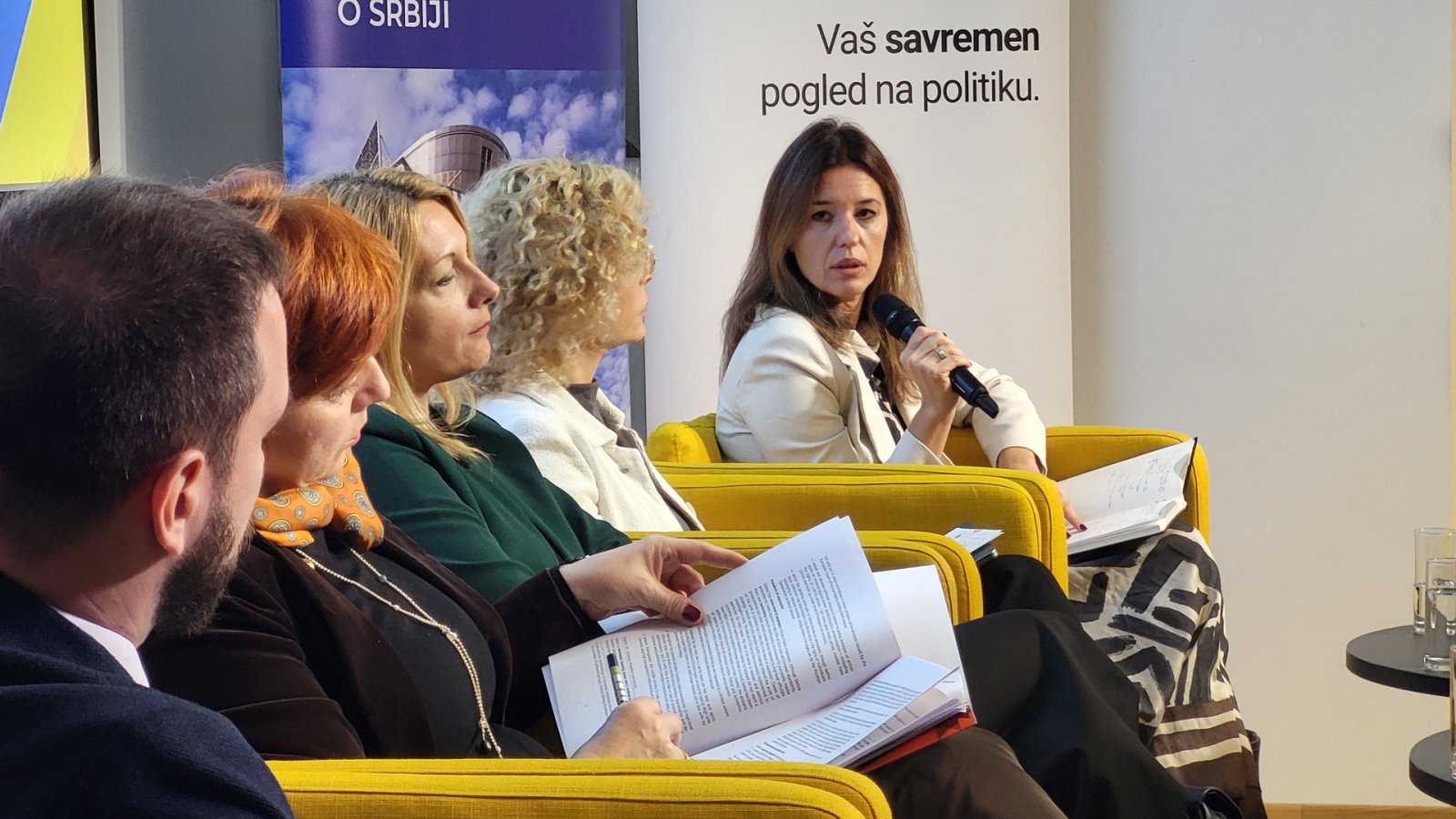
Analyzing the European Commission Report, Milena Mihajlović Denić, Program Director of the Center for European Policies (CEP), stated that in most chapters there is no progress or that progress is limited, and that there is not a single chapter with good progress.
“The narrative of the Report is very close to what we live and feel every day… Numerically speaking, there is some tiny progress – from 3.12 to 3.14 – but Serbia has been stuck at a score of three for a decade… The economic criteria are among the few areas where some progress has been recorded, but when it comes to public administration reform, the picture is very poor, including the assessment of the lack of quality control in public consultations,” noted Mihajlović Denić.
She emphasized that there is no progress in budget transparency either, that there are major problems in the functioning of independent bodies, and that the EC has expressed criticism regarding budget responsibility and public procurement.
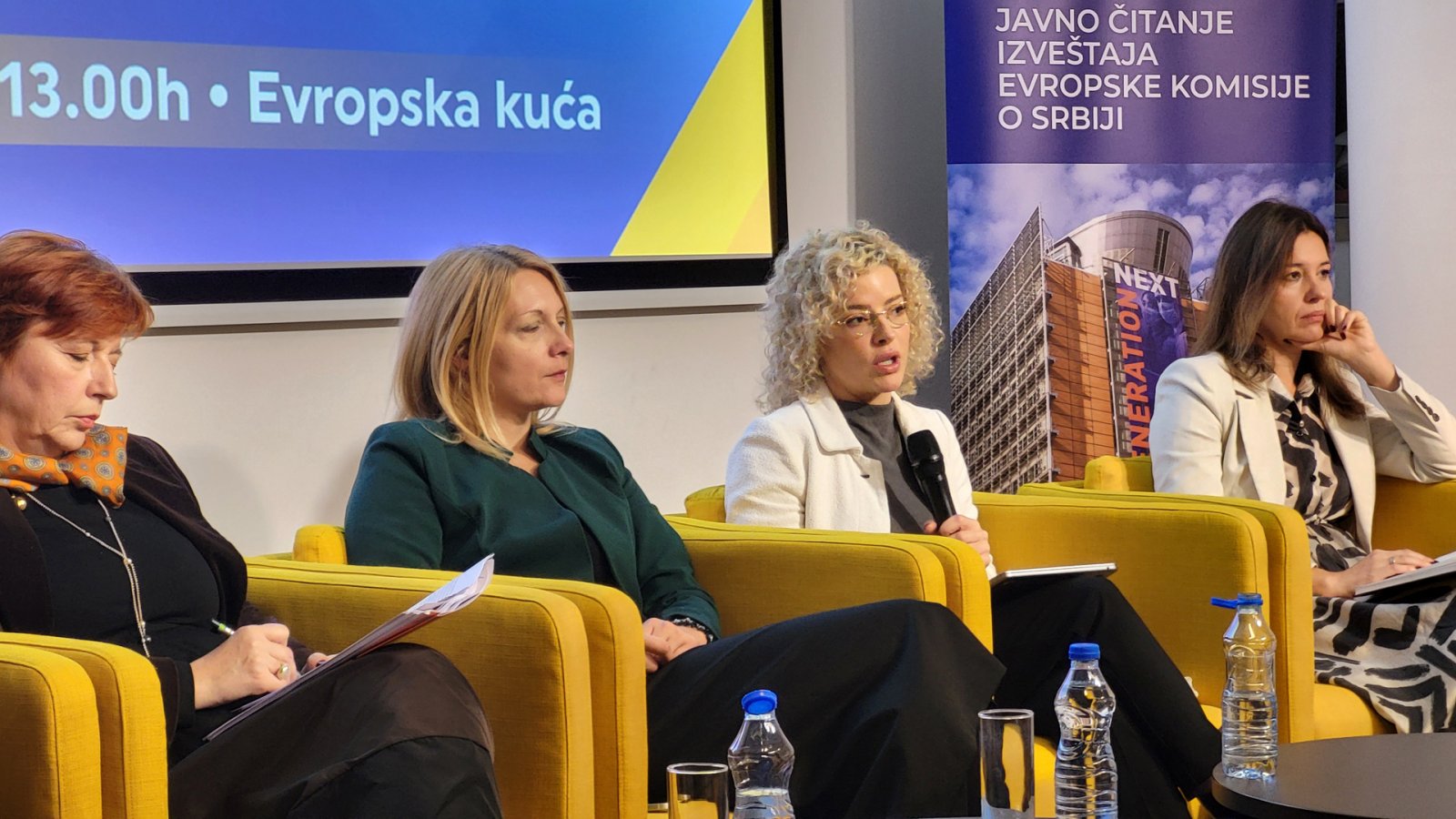
According to Nikola Burazer, Program Director of the Center for Contemporary Politics (CCP), the findings of the Report related to democracy provide answers to the essential question – whether Serbia has the perspective to become a member of the European Union or not.
“The European Commission’s assessments are very sharp and clear, including condemnation of attacks on students and citizens, on the property of people supporting the protests, political polarization, assaults on the autonomy of universities, findings that the local elections held this year were neither free nor fair, that the National Assembly met very few days, and that civil society is in an increasingly difficult position,” pointed out Burazer.
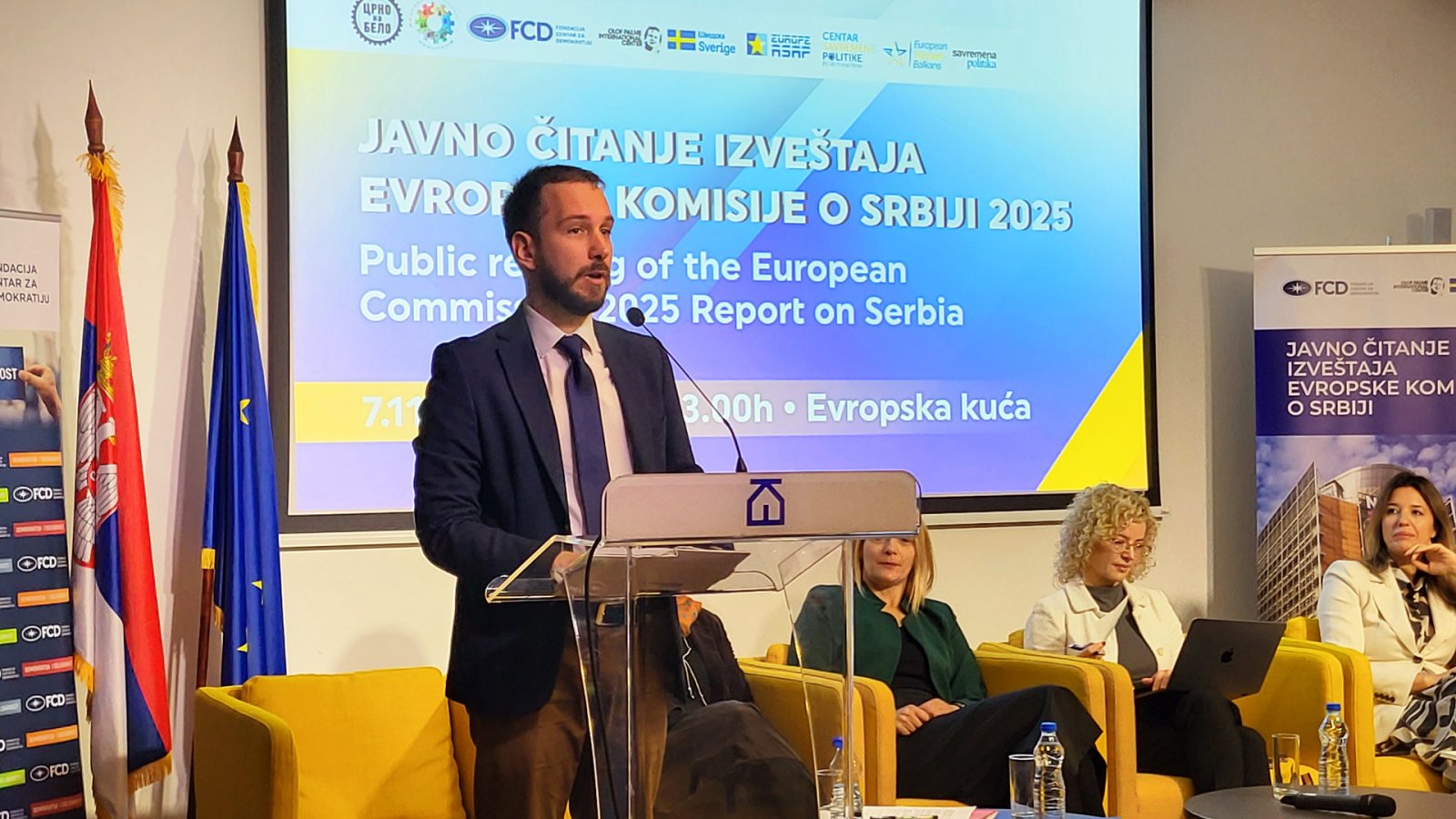
At the public reading of the report, which the Foundation Center for Democracy and the Center for Contemporary Politics traditionally organize, the most important findings of the European Commission from various areas are presented, Serbia’s report is compared with reports on other Western Balkan countries, and civil society organizations that have long been dedicated to Serbia’s European integration offer recommendations for improving reforms and the EU integration process.
The Center for Democracy Foundation and the Center for Contemporary Politics, with the support of the Olof Palme International Center
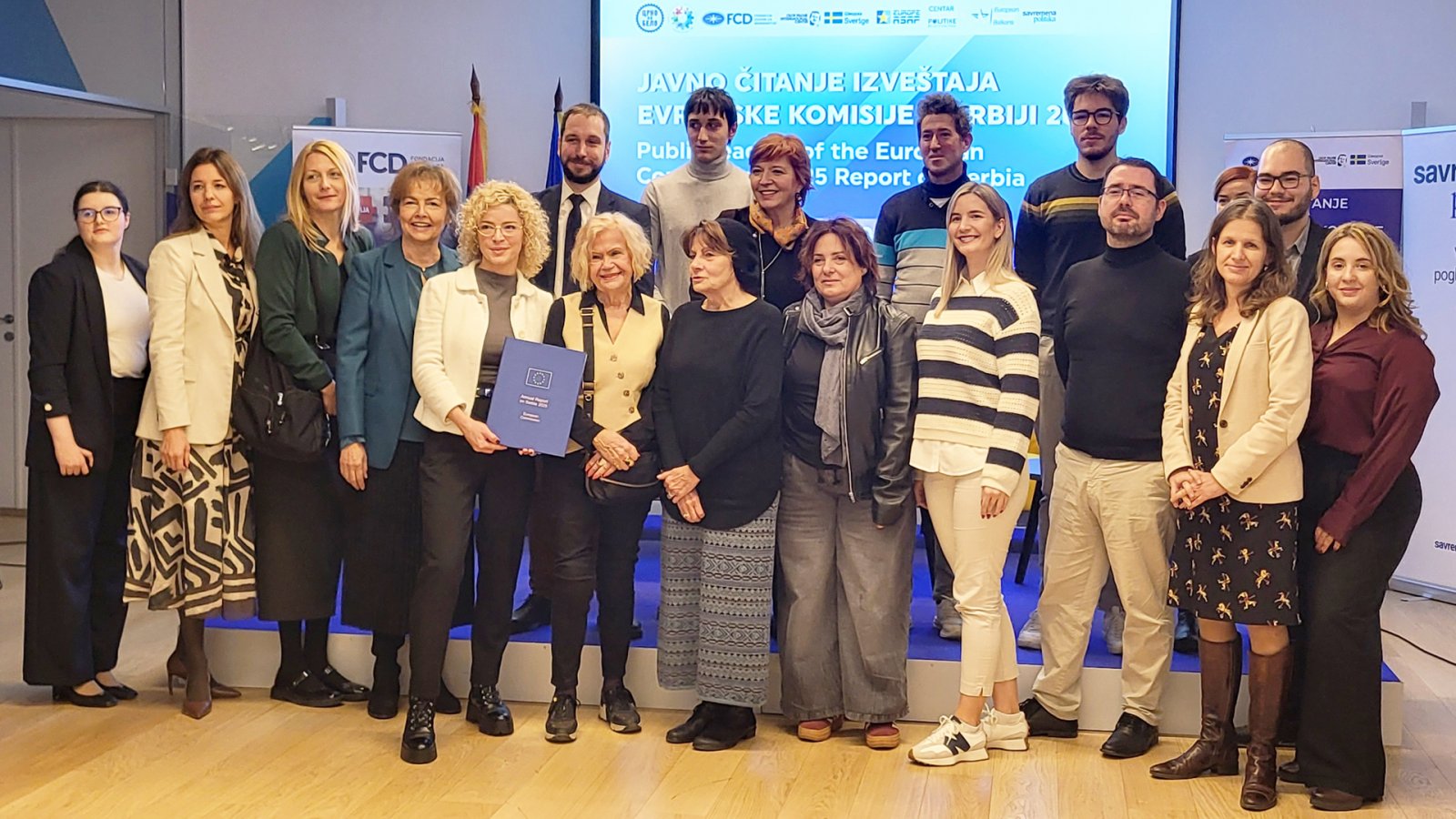
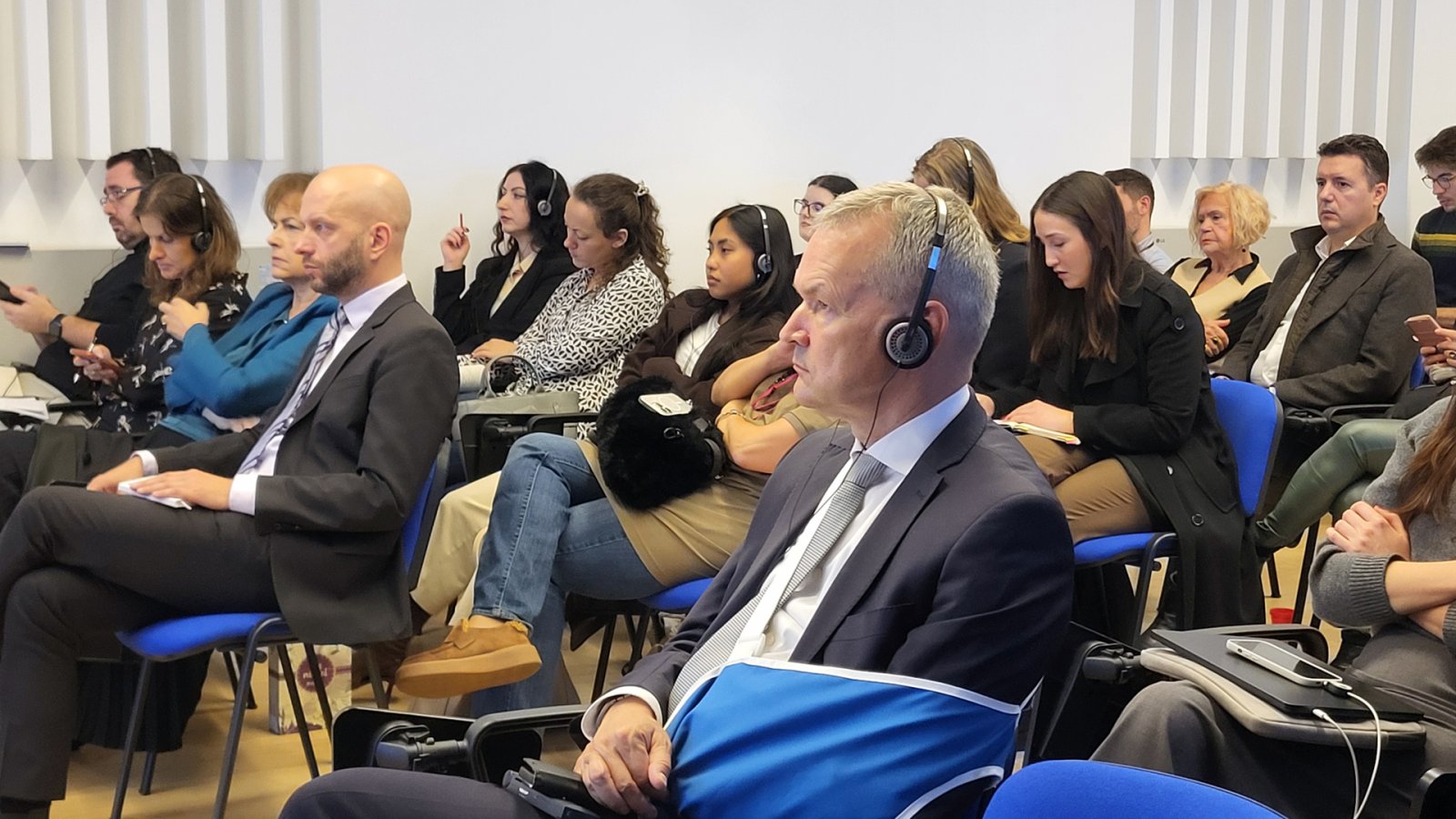
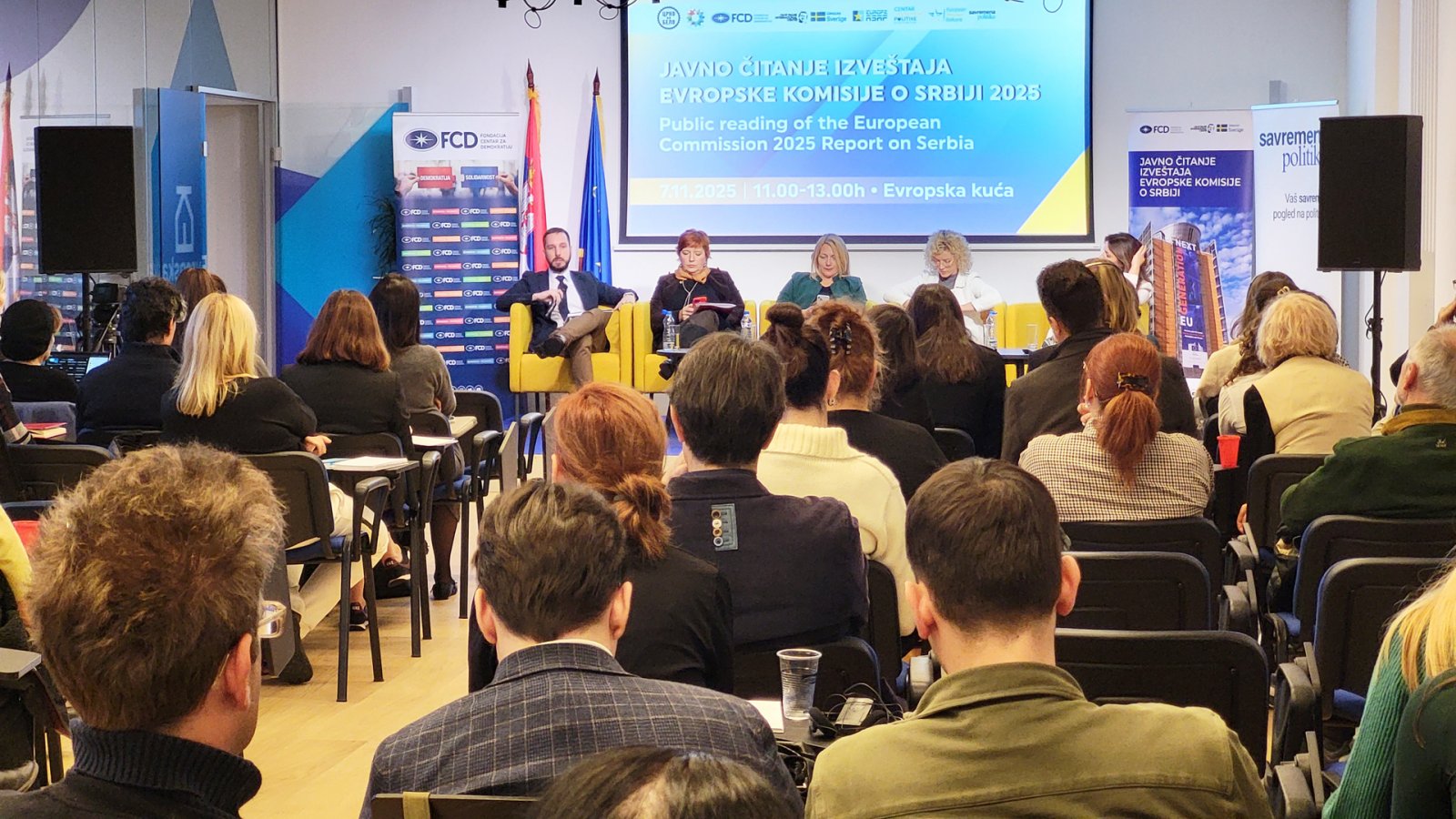
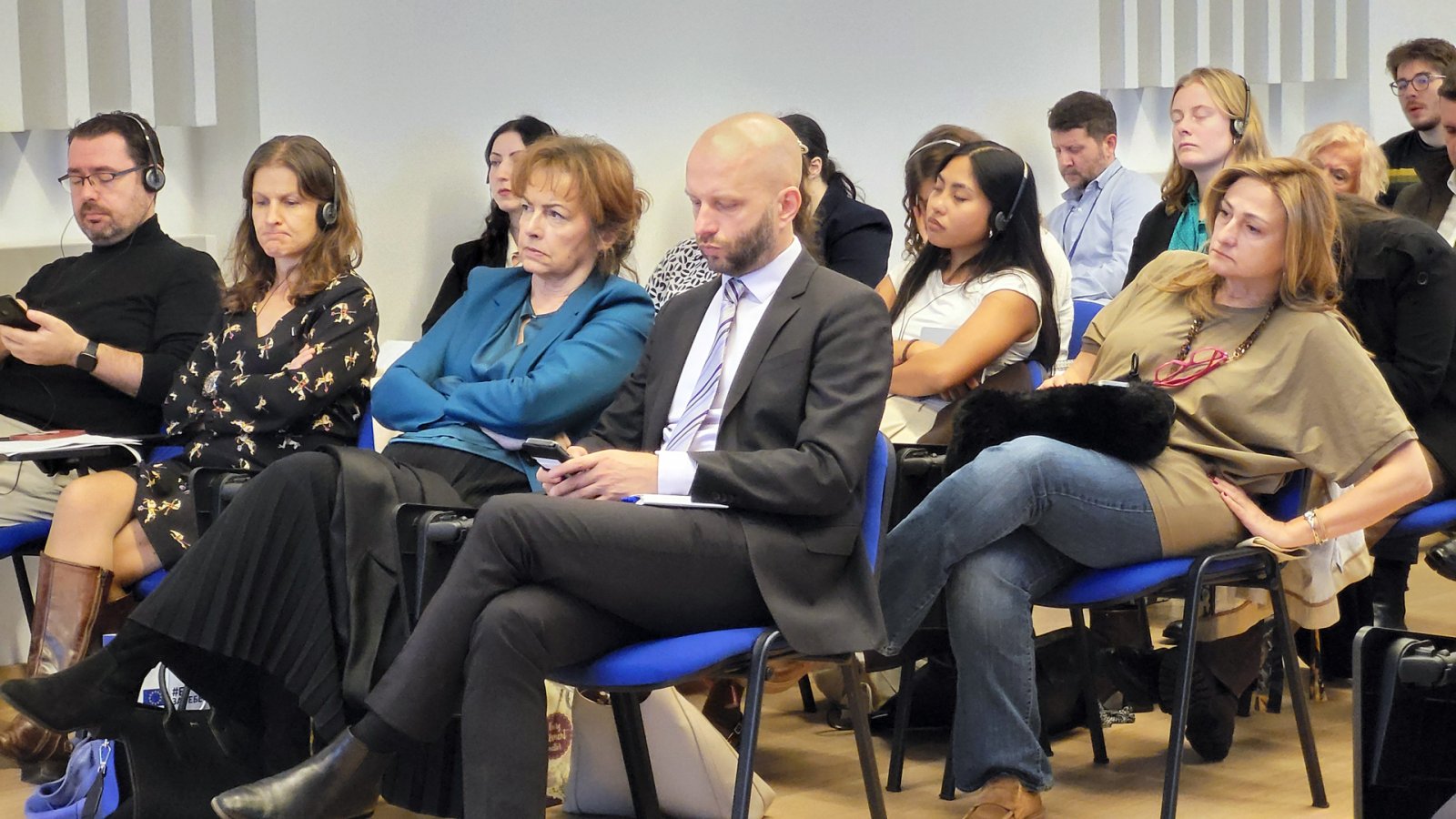
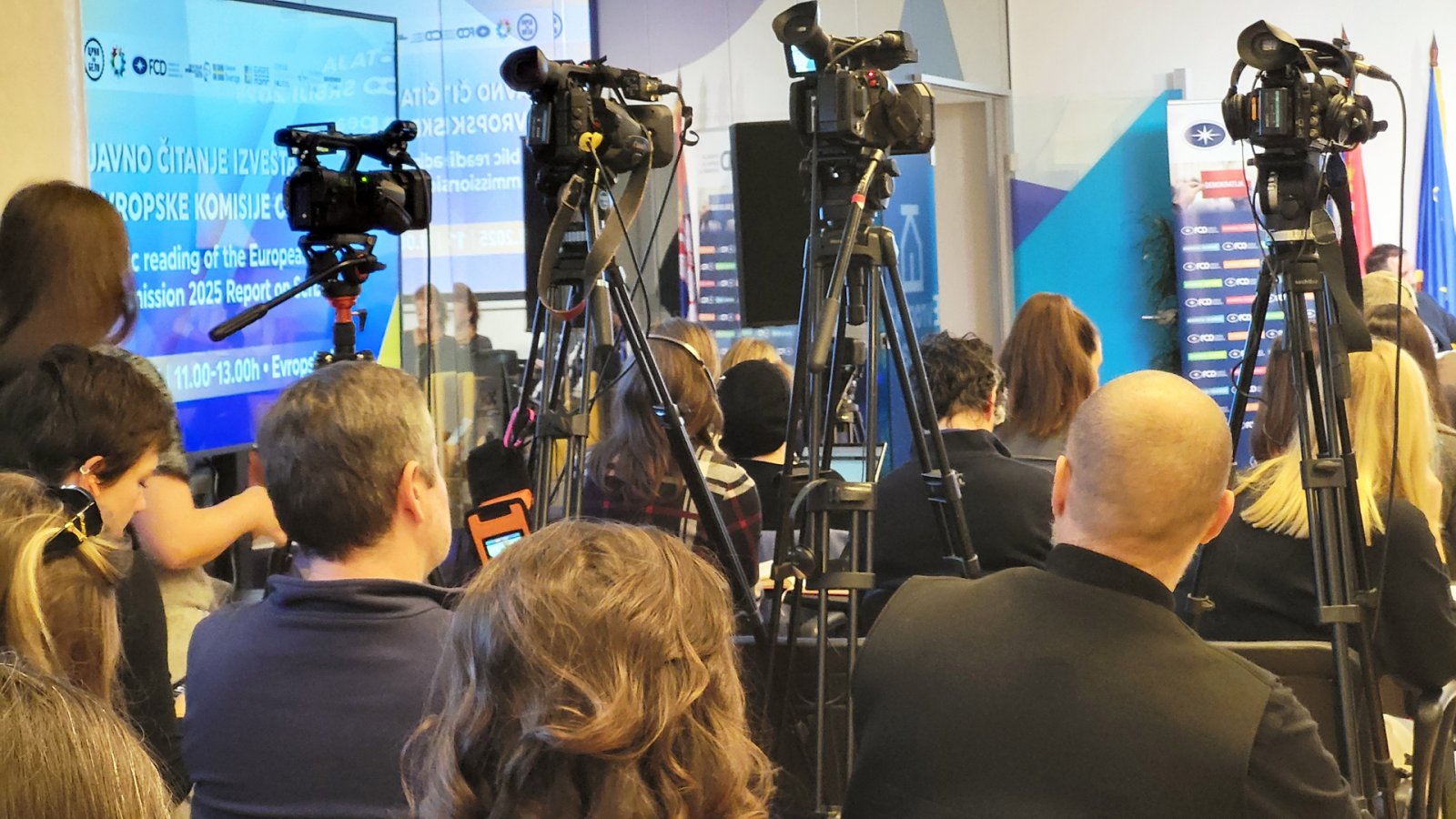
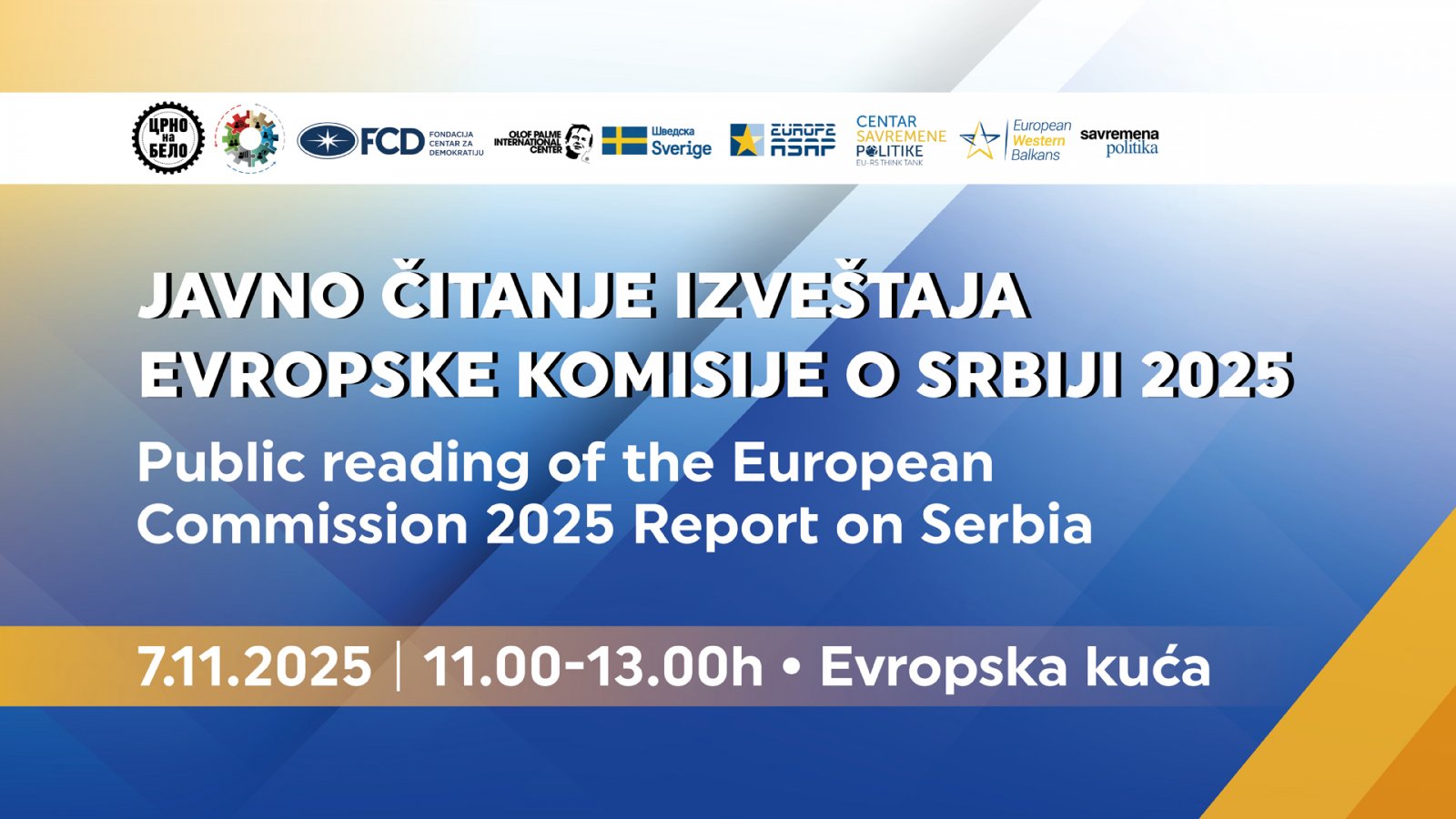
Source: Savremena politika, Beta News Agency, CDF
Video
PUBLICATIONS
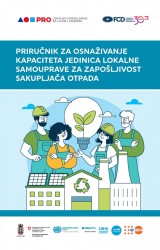 Manual for Strengthening the Capacities of Local Self-Government Units for the Employability of Waste Pickers
Manual for Strengthening the Capacities of Local Self-Government Units for the Employability of Waste Pickers
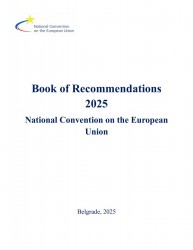 NCEU Book of Recommendations 2025
NCEU Book of Recommendations 2025
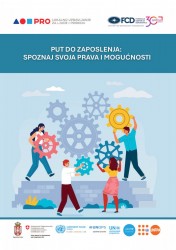 Manual “The Path to Employment: Get to Know Your Rights and Opportunities”
Manual “The Path to Employment: Get to Know Your Rights and Opportunities”
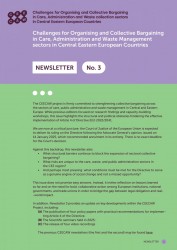 Challenges for Organising and Collective Bargaining in Care, Administration and Waste collection sectors in Central Eastern European Countries
Challenges for Organising and Collective Bargaining in Care, Administration and Waste collection sectors in Central Eastern European Countries
 Public Policy Proposals – Collective Bargaining (CEECAW)
Public Policy Proposals – Collective Bargaining (CEECAW)
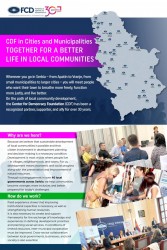 CDF in Cities and Municipalities: Together for a Better Life in Local Communities
CDF in Cities and Municipalities: Together for a Better Life in Local Communities
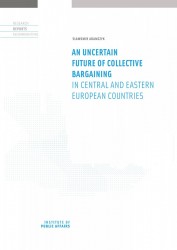 Comparative reports on collective bargaining - CEECAW
Comparative reports on collective bargaining - CEECAW
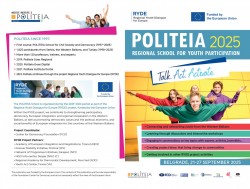 POLITEIA – Regional School for Youth Participation 2025 (leaflet)
POLITEIA – Regional School for Youth Participation 2025 (leaflet)
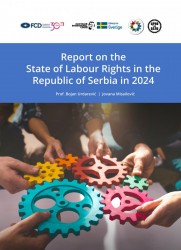 Report on the State of Labour Rights in the Republic of Serbia in 2024
Report on the State of Labour Rights in the Republic of Serbia in 2024
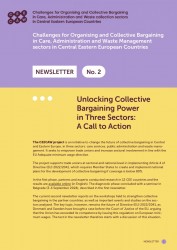 Unlocking Collective Bargaining Power in Three Sectors: A Call to Action
Unlocking Collective Bargaining Power in Three Sectors: A Call to Action
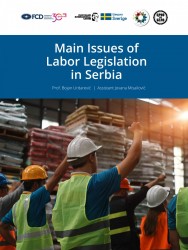 Main Issues of Labor Legislation in Serbia
Main Issues of Labor Legislation in Serbia
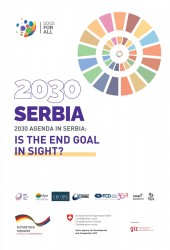 New Monitoring Report by the “SDGs for All” Platform: Is the End Goal in Sight?
New Monitoring Report by the “SDGs for All” Platform: Is the End Goal in Sight?
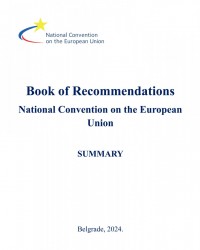 NCEU Book of Recommendations 2024 (Summary)
NCEU Book of Recommendations 2024 (Summary)
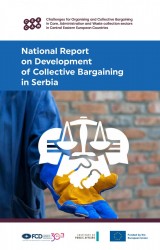 National reports on collective bargaining in Serbia - CEECAW
National reports on collective bargaining in Serbia - CEECAW
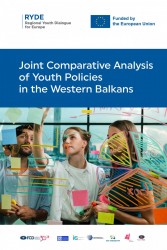 The Comparative Analysis of Youth Policies in the Western Balkans (WB)
The Comparative Analysis of Youth Policies in the Western Balkans (WB)
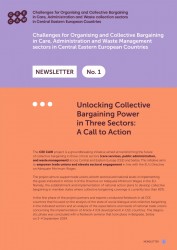 Unlocking Collective Bargaining Power in Three Sectors: A Call to Action
Unlocking Collective Bargaining Power in Three Sectors: A Call to Action
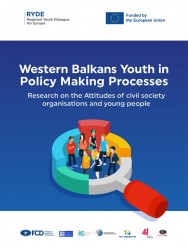 Western Balkans Youth in Policy Making Processes
Western Balkans Youth in Policy Making Processes
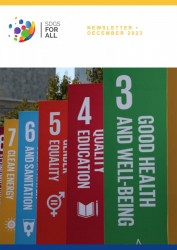 SDGs for All Platform newsletter (December 2023)
SDGs for All Platform newsletter (December 2023)



